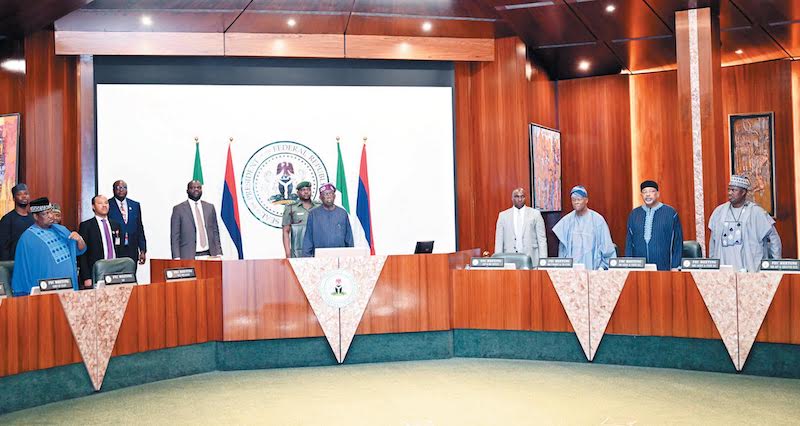A new survey report just released by the National Bureau of Statistics (NBS) shows that the most prevalent shock affecting 71 per cent of households in Nigeria is price increases on major food items in the last 12 months.
The survey, 2023/24 General Household Survey-Panel, commonly called (GHS-Panel) Wave-5, is a follow-up to the 2018/2019 GHS Wave-4.
It seeks to enhance the understanding of household living conditions and provide government and other policymakers with reliable information for effective policy decision-making in Nigeria.
It specifically collects information on household income, assets and consumption, income-generating activities, health, education as well as shocks.
The survey conducted in collaboration with the World Bank and released yesterday in Abuja said 48.8 per cent of households surveyed reported that their main mechanism for coping with the increase in the prices of food items was reducing food consumption.
The report further said that 65.8 per cent of the households indicated being unable to eat healthy, nutritious or preferred foods because of lack of money.
The report also shows that 73.0 per cent of survey household members ages 10 to 19 were enrolled in school during 2018/2019 Wave 4 survey. But by 2023/2024 Wave 5 survey, the proportion of the people who were in school had decreased to 44.8 per cent, as 34.8 per cent of those previously enrolled were now out of school.
In the area of energy access, the survey shows that only 40.4 percent of households in rural areas had access to electricity compared to 82.2 per cent of urban households.
It also reports that many households lack toilet facilities and rely on tube wells or boreholes for drinking water. It noted that waste disposal is mostly informal, with 45.6 per cent using bushes or streets.
In his address during the launch of the report, the Statistician General of the Federation (SGF), Prince Adeyemi Adeniran, said the survey is a multi-topic data collection exercise that serves as an essential tool for capturing the dynamics of Nigerian households, providing invaluable insights into their economic activities, well-being, and resilience.
He said it is a longitudinal survey, meaning that it tracks and interviews the same respondents over time. “In the 5th Wave of the survey, approximately the same 5000 households have been followed and interviewed across five waves,” he said.
“This includes Wave One conducted in 2010/11, Wave Two in 2012/13, Wave Three in 2015/16, Wave Four in 2018/19, and now Wave Five conducted in 2023/24.”
He said available records indicate that, over the last five years, the survey findings have been used to design several projects and intervention programmes worth approximately $8.9 billion across many sectors which include Agriculture and Food, Education, Water, Social Protection and Jobs, Governance, and several others.
In his goodwill message, the World Bank’s Country Director for Nigeria, Dr Ndiame Diop, said the survey was important in understanding how Nigerian households responded to policy changes, crises and shocks.
Diop, who was represented by Vinay Vutukuru, Programme Leader, Sustainable Development, Nigeria, however, said the key thing was how the data would be used by ministries and stakeholders for effective policy formulation to achieve economic and sustainable growth.
He pledged the bank’s continuous support in working with the NBS to strengthen Nigeria’s statistical system.

